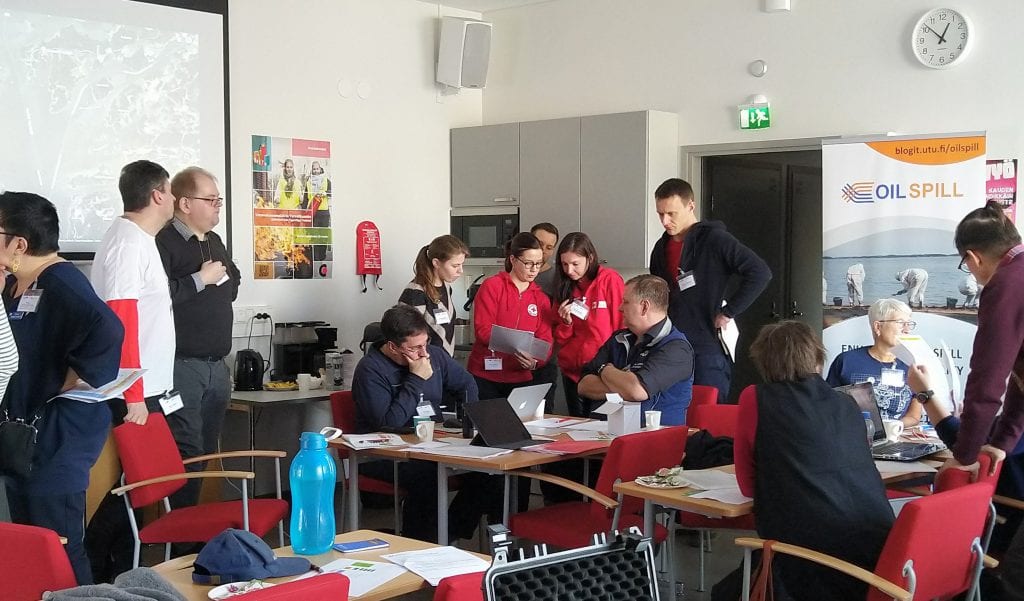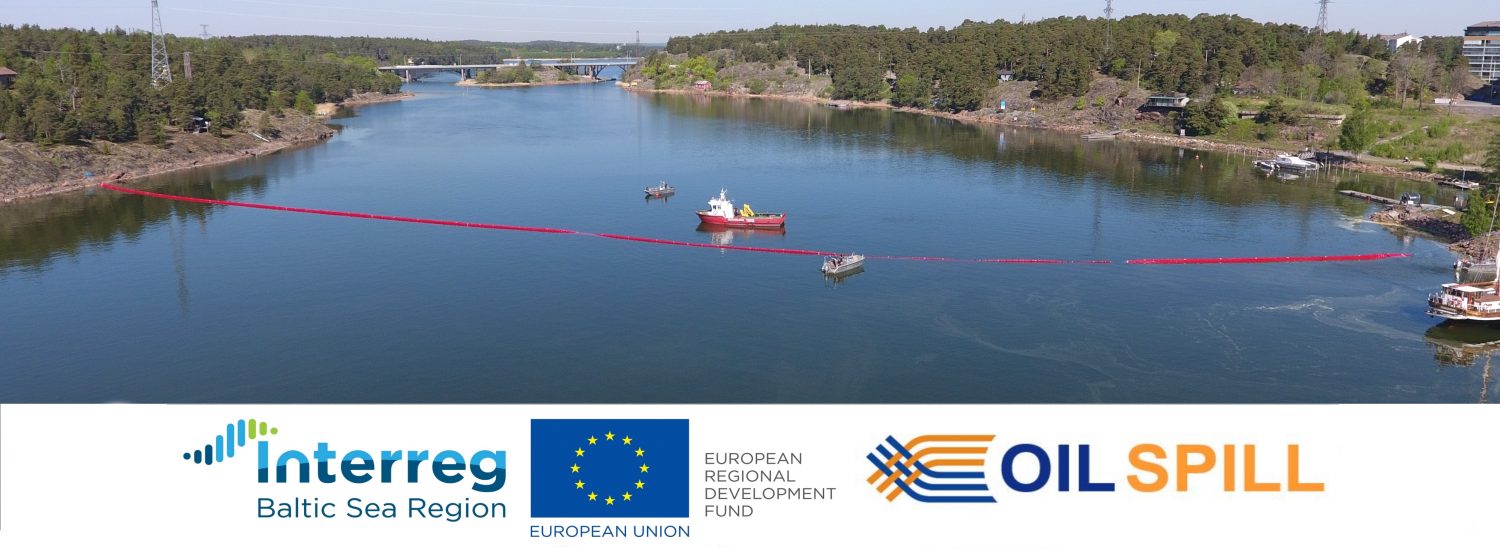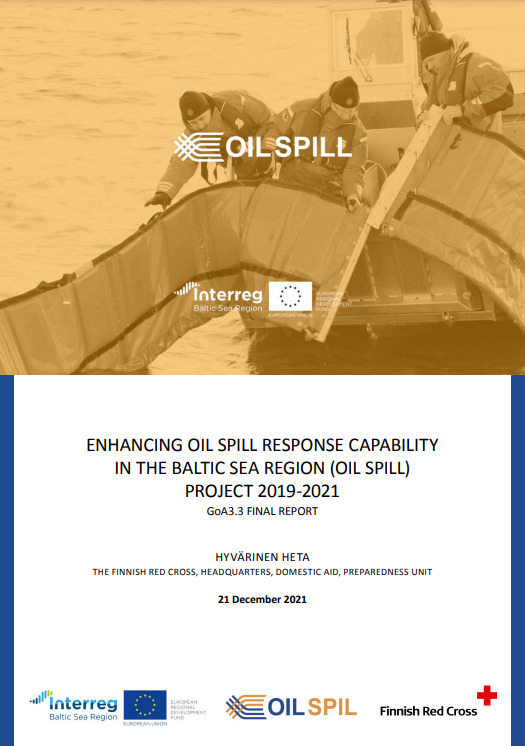Heta Hyvärinen, Finnish Red Cross: Activity Report and Reflections on Progress in Voluntary OSR
Heta Hyvärinen, Finnish Red Cross
Coastal oil spill response (OSR) is often an arduous long-term operation, and volunteers can offer authorities valuable help. In OIL SPILL, one aim was to enhance the procedures and practicalities in this collaboration. The Finnish Red Cross led the work dealing with educational activities of non-governmental organizations in cooperation with competent authorities.
In the pilot area in Southwest Finland, we have concentrated on developing the roles and practices at the Command Center of the Voluntary Rescue Service. One of the aims was to clarify the roles and tasks of the actors engaged in OSR. The Command Centre manages all the different sectors of volunteers and, therefore, it must function well. The voluntary manager, who is the leader of the Command Centre, operates directly with the authorities.
I think the greatest outcome in the pilot area is the functional volunteers’ Management Team, where participants are aware of the roles and policies of their partners. Another achievement − much related to this − is the enhanced cooperation between the Management Team and local authorities, in our case, the Southwest Finland Emergency Services. During the Project, we initiated a series of meetings and joint exercises between volunteers and authorities, and it was really great to see the progress. The challenges noticed in each exercise were discussed and solved together. It is very beneficial if the people involved in a real oil spill case or any other accident know each other and have already practiced together.
We organized various (mostly online) meetings with the Project’s international voluntary sector, too. It was exciting to follow the developments in the Partner countries. For instance, the work that was done in Denmark to engage and manage spontaneous volunteers was excellent. Perhaps an even more remarkable achievement was the enhanced cooperation between authorities and volunteers in Latvia and Lithuania. It is always rewarding to see something happening for the very first time and people being enthusiastic about it! It is great if our example from the pilot area has contributed to this development.
Finally, what I have learned during the Project is that voluntary oil spill response is an especially challenging hobby. You are preparing for something that might never happen − but if it does happen, you must know exactly what you are doing. The staff representatives of NGOs face challenges, too: they must keep the volunteers motivated despite not being able to offer weekly or even monthly meetings. In addition, the cooperation must be written in the NGOs’ annual plans, only that way it becomes a reality, and the same applies to authorities. This way, a budget for the cooperation is also ensured: without a budget, you cannot do much. You must also actively seek possibilities to present your organization and the skills of the volunteers. Whether volunteers’ efforts are appreciated or not depends much on the authorities who are responsible for OSR. Hopefully, we have succeeded in using the OIL SPILL consortium as a platform to promote the usefulness of volunteers.
The Baltic Sea Region would benefit from international oil spill response troops that can be alarmed and have common practices. This is an idea for the next project though, and, again, must be discussed and accepted in the board of the organizations involved. In Finland, it is important to ensure the continuation of the work that has been done in OIL SPILL and other past projects related to voluntary OSR. Here, and in other countries, I am definitely in favor of joint training and exercises for volunteers and authorities, instead of each organizing their own courses and trainings.



Leave a Reply